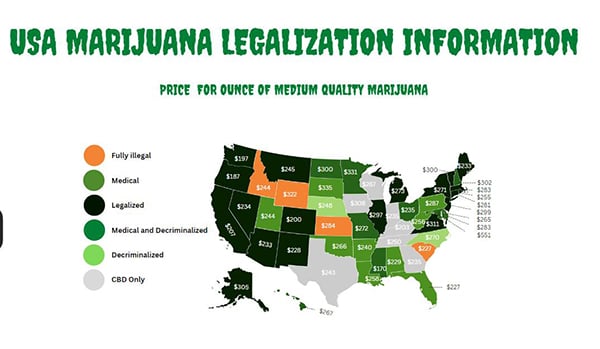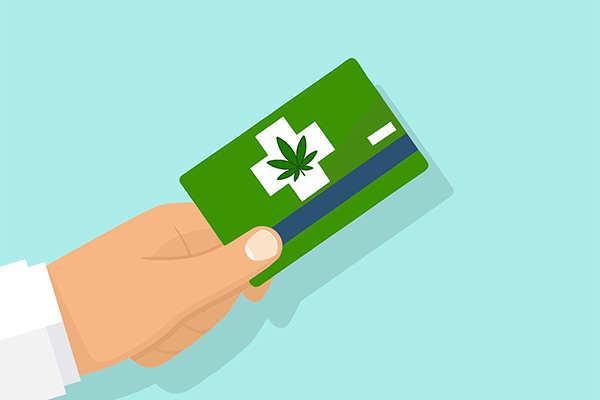Does Medical Marijuana Get You High
Does Medical Marijuana Get You High?
With 40 states legalizing medical marijuana, the American Medical Association sees the plant as a valuable medical tool. There are more people than ever using it for medical purposes.
Here is a list of the states with medical marijuana programs and legal recreational cannabis laws

Medical marijuana has been proven to help with nausea, pain management, sleep, depression, and cancer treatment, especially during chemotherapy. There are more than 4 million registered patients, and many times more, who are trying cannabis on a smaller basis. But does medicinal marijuana get you high?
Before legalization, medical marijuana users had to rely on their personal friends or dealers to supply their cannabis and then figure out how the best way to consume it.
Joints and brownies were the most popular ways, but these consumption methods proved challenging to regulate the amount of THC. This sometimes resulted in the patient feeling better physically. However, they were too high and, as a result, unproductive and couldn't easily maintain a normal lifestyle and see to daily chores.
Regulating the amount of THC consumed is a fine balancing act for medical marijuana because you want its benefits but don't want to be completely stoned.
The chemical structure of THC is similar to the brain chemical anandamide. The structural similarities allow the body to recognize THC and alter normal brain communication. They affect areas of the brain that influence pleasure, memory, thinking, attention, movement, coordination, and sensory and temporal perception. Because of this similarity, THC is able to attach to molecules called cannabinoid receptors on neurons in these brain regions and activate them, disrupting various mental and physical functions. THC, which works through cannabinoid receptors, can also activate the brain's reward system, which includes areas that control responses to healthy pleasurable behaviors such as sex and eating.
In legal, medical marijuana states, the packaging should tell you how strong the product is. Food, oils, and vaporizers tend to be the most popular forms of medicinal consumption.
The FDA does not regulate medical marijuana the way it regulates prescription drugs. While states monitor and regulate sales, they often don't have the resources to do so. This means that the strength and composition of medical marijuana can vary greatly depending on where it is purchased.
Additionally, there have been numerous reports of cannabis product testing not showing the same amount of THC and other cannabinoids as listed on the packages. So be sure to source from a reputable dispensary and brand.
Talk to a knowledgeable person at the retailer, explain your needs, and ask any questions. If the first product only partially helps, please seek additional help and guidance. People respond differently to different consumption methods and cannabis products.
It is important to consult with a qualified medical professional before taking cannabis for medical purposes. Marijuana may interact with your current medication or there may be other concerns you should be aware of.
Do you need a Medical Marijuana card?

A medical marijuana card allows you to purchase medical marijuana from a dispensary in your state legally. This is the only way to legally buy marijuana in states where recreational marijuana has not been legalized.
Your medical marijuana card can also have reciprocal benefits, allowing you to purchase from facilities in other states. Note that reciprocity is a complex web of rules, so if you're traveling, be sure to check the rules first.
You will also notice that medical marijuana is substantially cheaper than buying recreational cannabis without a medical card. The tax on recreational cannabis can be over 28%. In comparison, medical cannabis can be taxed at just 1 or 2%.
$100 worth of medical marijuana may cost just $105 with sales tax, whereas the same stain could cost $130 without a medical marijuana card.
Having a medical marijuana card may also allow you to grow your own cannabis in some states. Illinois allows medical cannabis patients to grow up to five plants at any time for personal possession and consumption.
FAQs
How to get a medical marijuana card?
For more information on how to acquire a medical marijuana card, check out our previous article on the matter.
Is recreational cannabis more potent than medical marijuana? Medical Marijuana cards
A 2020 study published on ncbi.nlm showed no real difference between the THC content in medical and recreational cannabis. While medical marijuana dispensaries may be better at advising the consumer on the best stain, medical and recreational advertised cannabis were of comparable potency.
